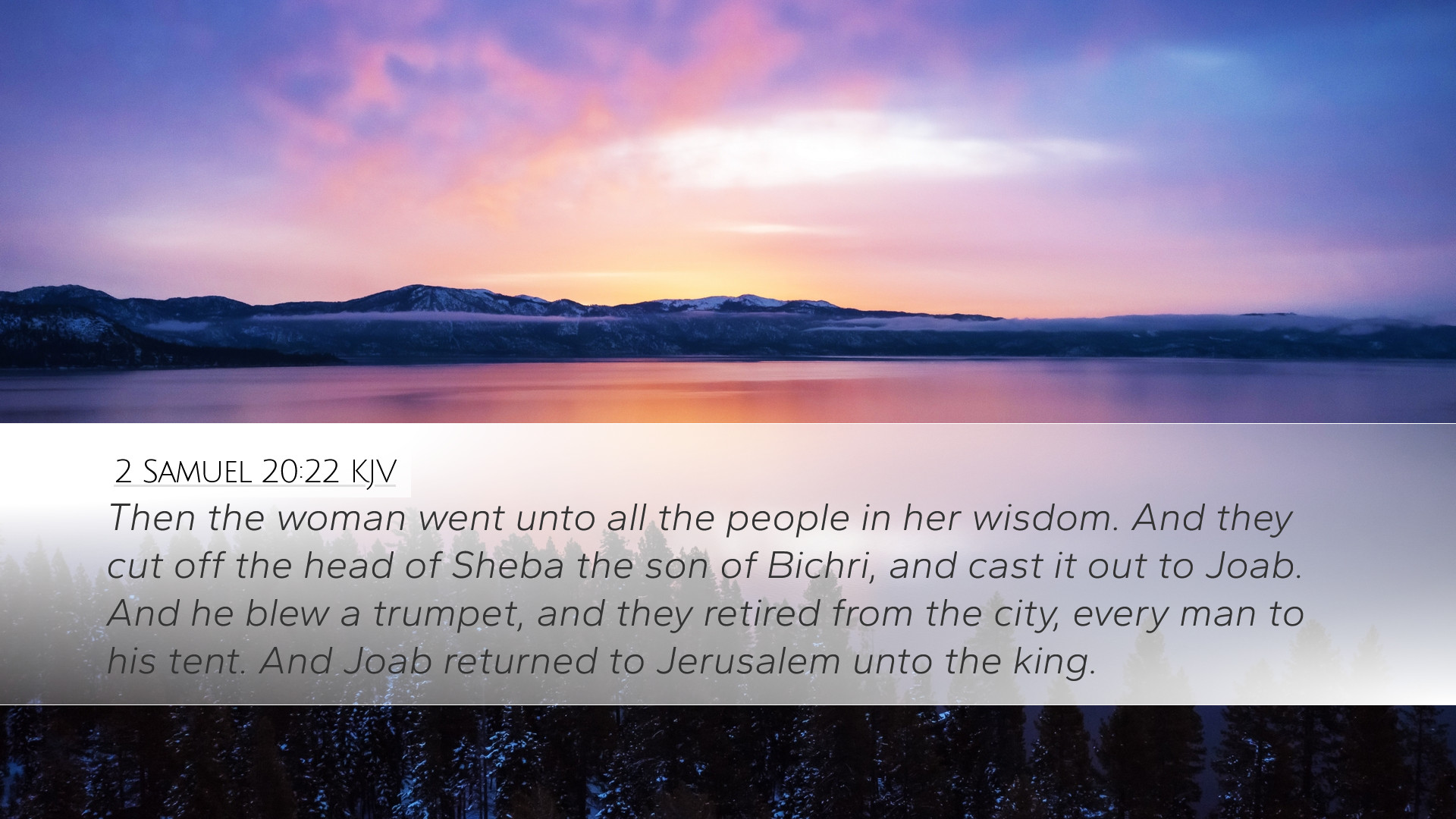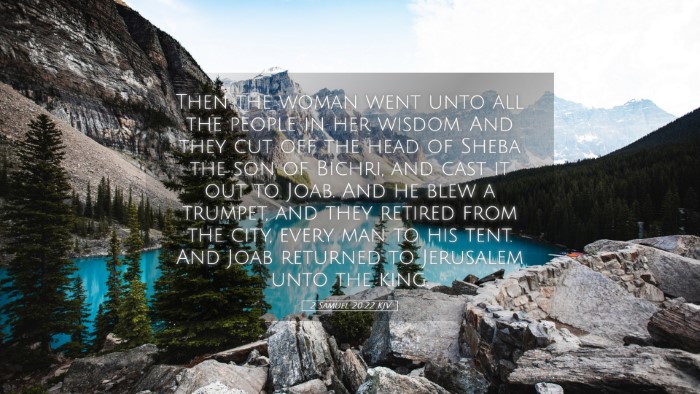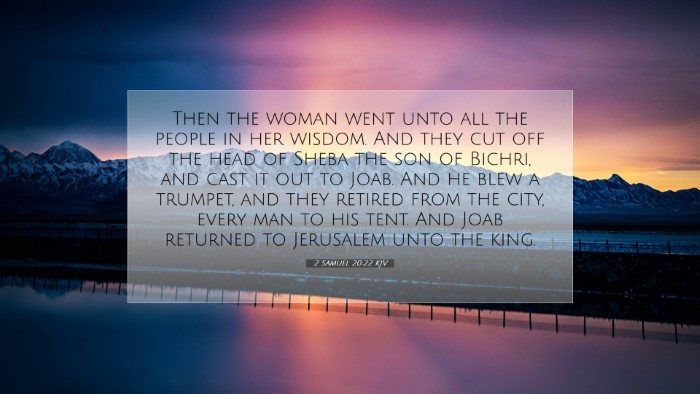Commentary on 2 Samuel 20:22
Verse Text: "Then the woman went unto all the people in her wisdom. And they cut off the head of Sheba the son of Bichri, and cast it out to Joab. And he blew a trumpet, and they went in after Israel. Every man to his tent. And Joab returned to Jerusalem unto the king." - 2 Samuel 20:22
Introduction
This verse captures a pivotal moment in the narrative of 2 Samuel, embodying themes of wisdom, leadership, and the consequences of rebellion. In reviewing this passage, we shall glean insights from the esteemed comments of Matthew Henry, Albert Barnes, and Adam Clarke. This composite will serve to enlighten pastors, students, theologians, and Bible scholars alike.
Contextual Overview
2 Samuel 20 details the aftermath of Absalom's rebellion and the subsequent insurrection led by Sheba, the son of Bichri. The kingdom is fractured, and Joab, the commander of David's army, is tasked with restoring peace. The significance of this verse lies not only in the actions performed but also in the strategic wisdom exhibited by a woman in the city of Abel.
Analysis of Key Themes
Wisdom in Action
Matthew Henry's Insight: Henry emphasizes the remarkable wisdom of the woman in Abel. Despite the chaos brought by Sheba's rebellion, she arises as a figure of reason. Her judicious approach serves as a reminder that often it is those marginalized in society who possess insights critical to peace-making. Her wisdom was not merely intellectual; it was practical, aimed at the preservation of her city and the greater good of Israel.
Albert Barnes' Perspective: Barnes notes that this woman acted decisively and with foresight. By convincing the people to act against Sheba, she not only saved herself and the city from destruction but also averted further bloodshed. The emphasis on her wisdom suggests that God can use anyone, regardless of gender or status, to accomplish His purposes. This divine providence exemplified in her actions encapsulates the belief that wisdom is a vital weapon against disorder.
Leadership and Authority
Adam Clarke's Commentary: Clarke reflects on the role of leadership as demonstrated in this verse. The woman’s ability to rally the people illustrates true leadership. While Joab had authority over the military, it was this unnamed woman who was able to unify the city against the threat of Sheba. This exemplifies that effective leadership must combine authority with respect and wisdom, transcending traditional power dynamics.
Historical and Cultural Significance
The act of severing Sheba's head and presenting it to Joab signifies the resolution of a conflict in ancient Near Eastern culture, rooted in the brutal realities of warfare and justice. This practice was not merely symbolic; it represented a tangible act of submission and an appeal to restore order.
Cultural Reflection
In the context of ancient Israel, the role of women was often relegated to the domestic sphere. Yet, this incident highlights that women played crucial roles in public life, especially as conduits of wisdom and bearers of communal responsibility. The woman’s actions offer a compelling commentary on the interplay of gender and authority within the biblical narrative and society at large.
Lessons for Today
Church Leadership
This passage speaks volumes to contemporary church leaders. The woman's ability to navigate a crisis with wisdom is a leadership model that can be emulated in the modern church. Pastors and leaders are often faced with dividing issues, and the ability to unite the congregation, to nurture wisdom, and to balance authority with respect is crucial.
Community Engagement
This verse also draws attention to the responsibility of the community. The call for collective action in the face of adversity is a lesson for believers today. The church must recognize that every member, regardless of their role, possesses unique wisdom and strength that can contribute to the health of the body. Encouraging participation and valuing diverse voices leads to a more robust community.
Conclusion
2 Samuel 20:22 exemplifies profound themes of wisdom, leadership, and communal responsibility within the story of David’s kingdom. Insights from historical commentaries shed light on the implications of this verse, challenging current readers to reflect on their own leadership roles and their approaches to conflict resolution. As this verse concludes the narrative of rebellion, it echoes a call to pursue peace and justice through wise action.
References
- Henry, Matthew. Commentary on the Whole Bible.
- Barnes, Albert. Commentary on the Whole Bible.
- Clarke, Adam. Clarke's Commentary on the Bible.


